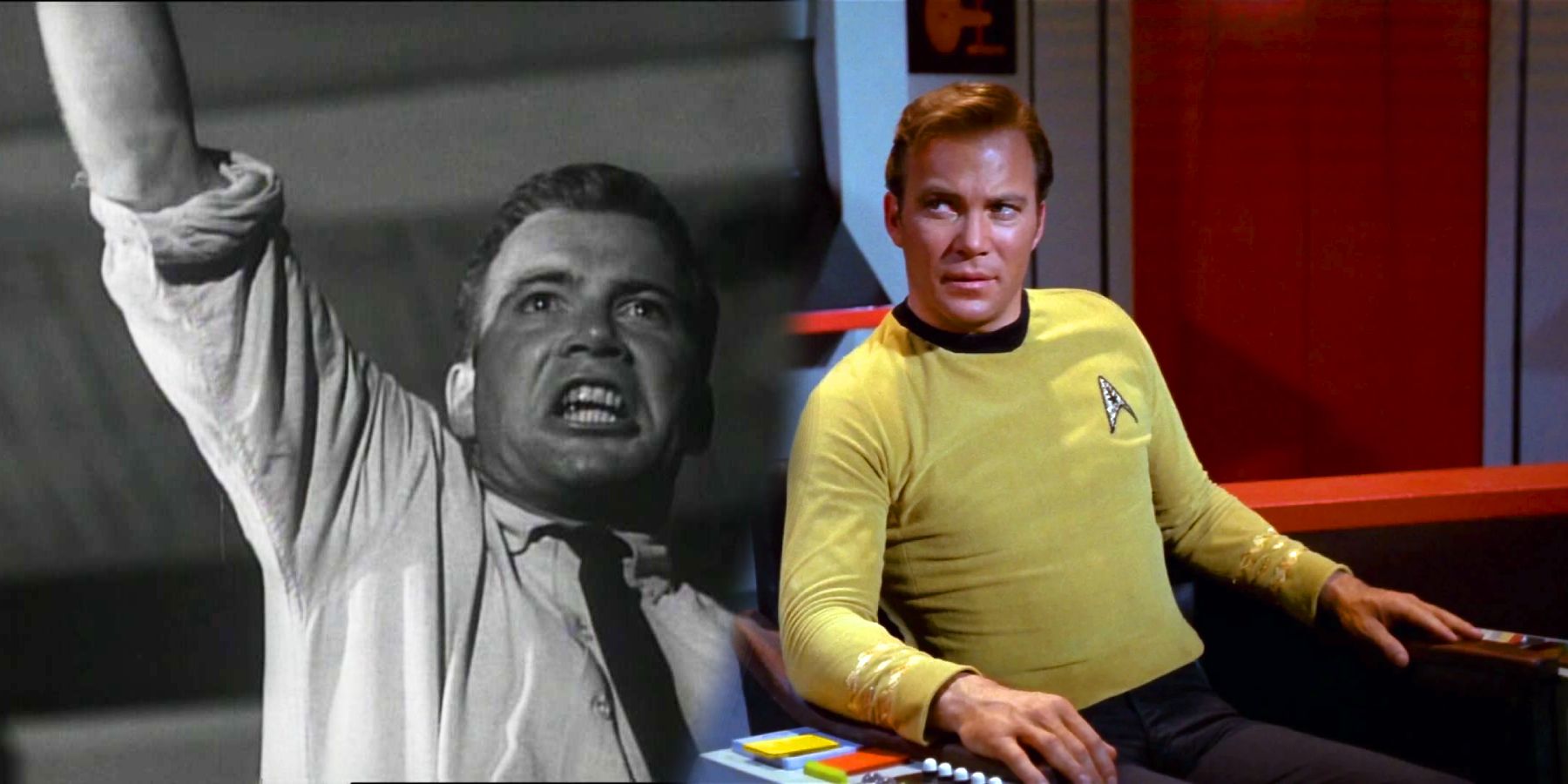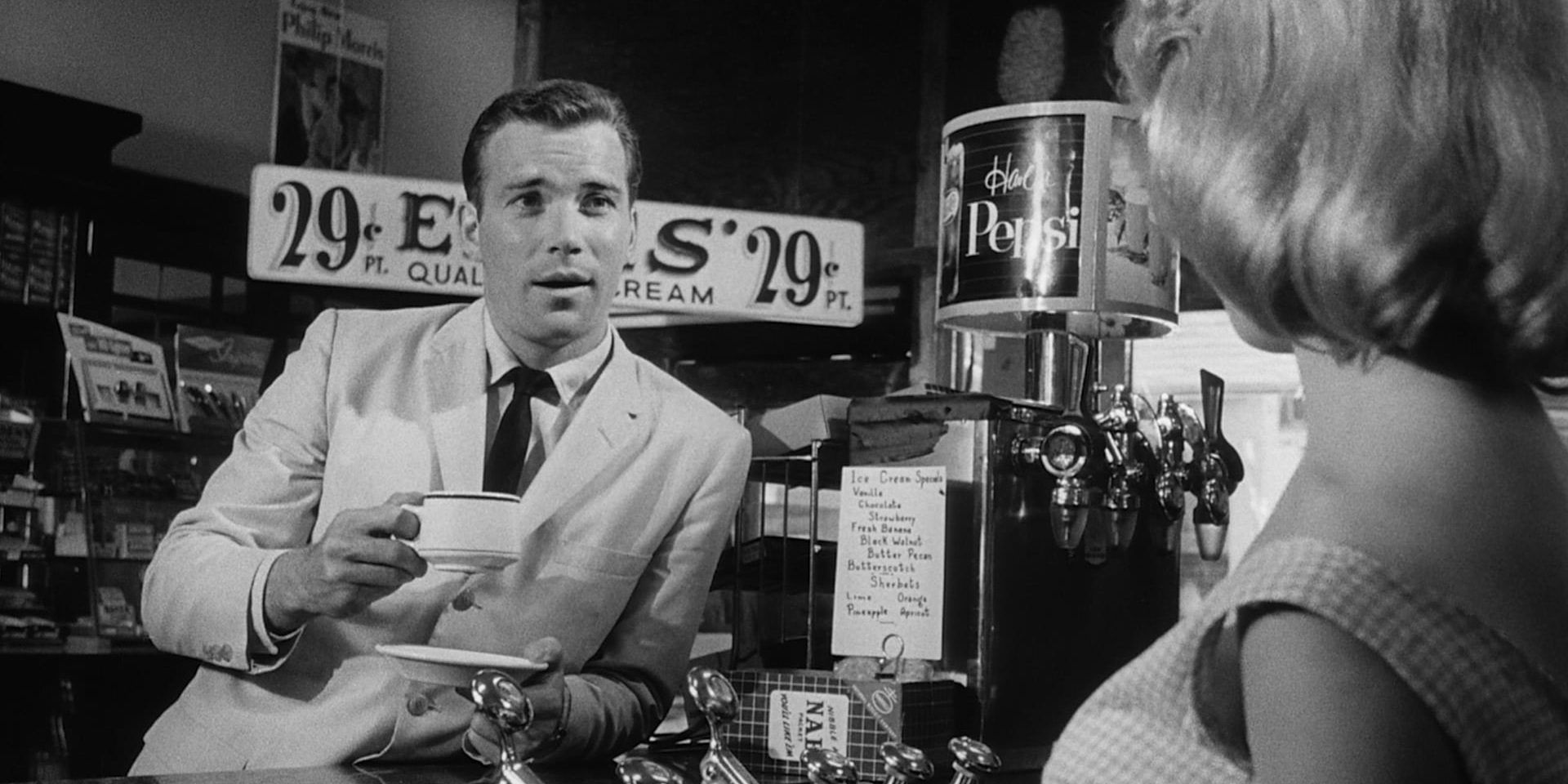A forgotten pre-Star Trek role for William Shatner proved the need for Gene Roddenberry's utopian vision of the future. William Shatner had a varied stage and screen career until he was cast as Captain Kirk, replacing Jeffrey Hunter's Pike in Star Trek's successful second pilot. While it's the characters of James T. Kirk and T.J. Hooker that will guarantee Shatner's legacy as an actor, there's a lesser-known role that deserves to be more widely seen by audiences.
Primarily a stage and TV actor, William Shatner had appeared in a handful of movies prior to being cast as Star Trek's Captain Kirk. His first movie role was as Alexei in 1958's The Brothers Karamazov, an adaptation of the Dostoyevsky novel and a vehicle for Westworld's Yul Bryner. Four years later, Shatner scored his first leading role in 1962's social issues drama The Intruder, directed by legendary filmmaker Roger Corman. It's an incredibly raw and powerful film, and its anti-racist message shares much in common with Gene Roddenberry's vision for Star Trek.
In The Intruder – which is based on Charles Beaumont's novel – William Shatner plays Adam Cramer, a charming stranger who arrives in the town of Caxton with a mission. The town's high school is on the eve of desegregating, finally allowing Black kids to receive the same education as White kids, allowing them to interact socially beyond racial divisions. The hostility towards Caxton's Black community in the movie reflects the racism that was endemic in many American towns during the 1960s. Later that decade, Martin Luther King identified Star Trek's Uhura (Nichele Nichols) as a character that could change perceptions, and inspire young Black girls. The Intruder is a movie about how charming grifters capitalize on societal tensions for their own ends, and the charismatic Shatner is perfectly cast as the scheming and ingratiating racist who stokes tensions in Caxton. His later involvement with Star Trek also emphasizes how right MLK was about how necessary the show was in changing attitudes around race. In particular, the contrast between the two roles and their political context highlights how important Star Trek's subtle societal commentary really was when it first hit screens.
William Shatner has been lampooned in the likes of Family Guy for the idiosyncratic acting style of his later career, but he gives his role in The Intruder his all. In Star Trek, Shatner played Kirk with a degree of roguish charm. Kirk was a womanizer, he'd also bend Star Trek's Prime Directive and take risks, but his rule-breaking was always in pursuit of doing the right thing. Adam Cramer in The Intruder is also a roguish womanizer with disrespect for the rules. Except he has no interest in doing the right thing. Where Kirk and the Enterprise explore the universe in a quest for discovery and understanding, Cramer is hell-bent on upholding the outdated racist and oppressive standards of American society. Yet, while the two characters are in many ways diametrically opposed, both roles provide a vision for progressive thinking – albeit in very different ways.
In order to carry out his plan, The Intruder's Cramer organizes cross burnings, and makes inflammatory racist speeches, stoking tensions in the town until it overflows into violence. A church is bombed, and the film climaxes with an attempted lynching. The events of Corman's film are painfully close to real-life events such as the horrific murder of Emmett Till in 1955, and the Atlanta church bombing of 1958, the same year Beaumont's original novel was published. The Intruder is more of an angry polemic than the political allegories of Gene Roddenberry's Star Trek. Corman later reflected upon how he changed to a more allegorical approach to social and political messaging with his better-known genre movies. The Intruder's more overt messaging proves how necessary the anti-racist message of the film was. Four years later and Star Trek would be tackling similar themes within a sci-fi context, making a positive impact on viewers as it did so. It's something that the show continues to do today. In many ways, this essential role was foreshadowed by Shatner's earlier performance in the largely-forgotten Corman project.


